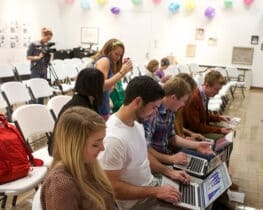Health Insurance
As an ACU international student, you’ll purchase the group health insurance policy to help pay for your healthcare costs. Learn more about how health insurance works in the U.S. here: How does Health Insurance Work? You can learn more about our specific policy in this Video.
Please note: the ACU group health insurance policy does not pay for general dental care or eye exams and glasses – so be sure to complete these before you come!!
You can access more details on our webpage at this link: International Student Group Health Insurance information.







